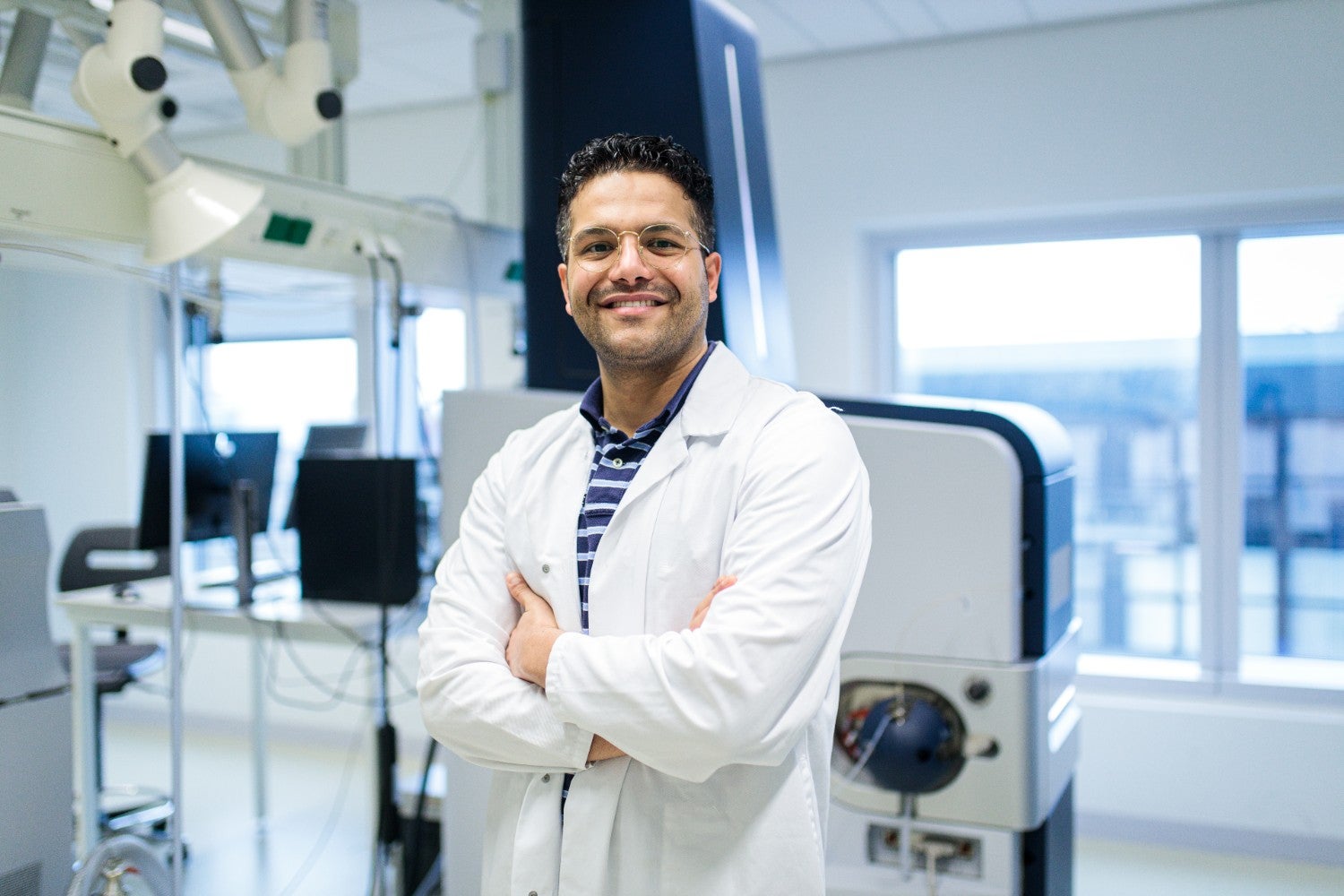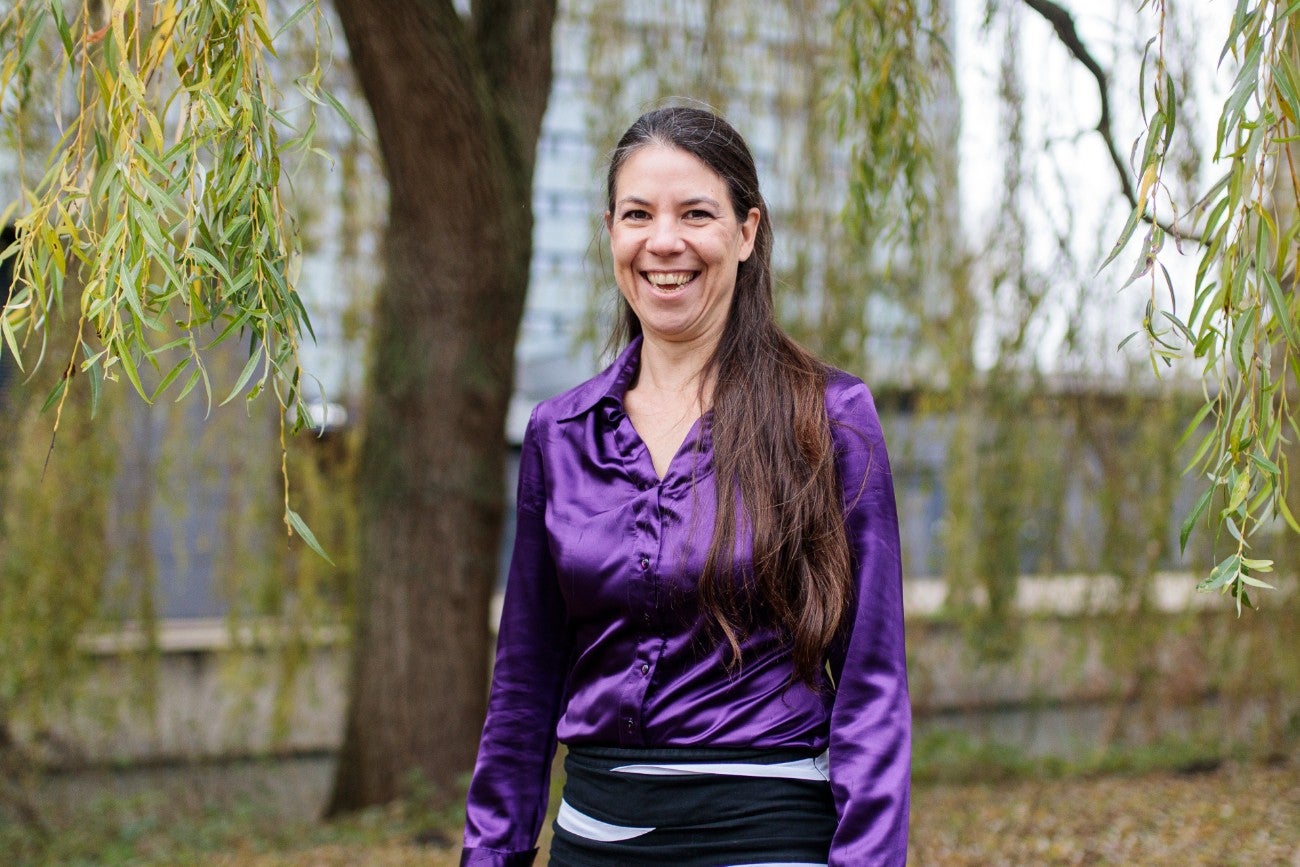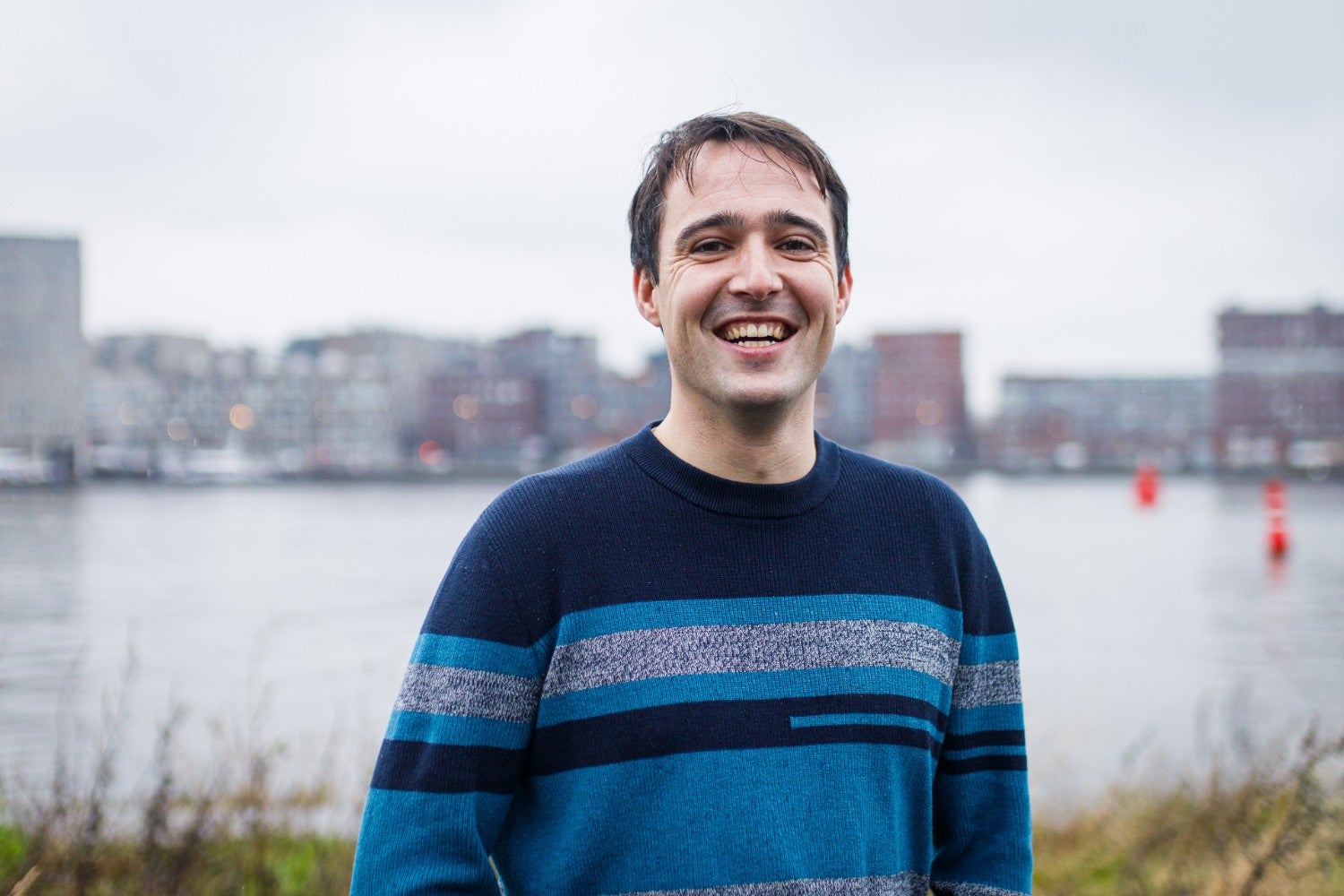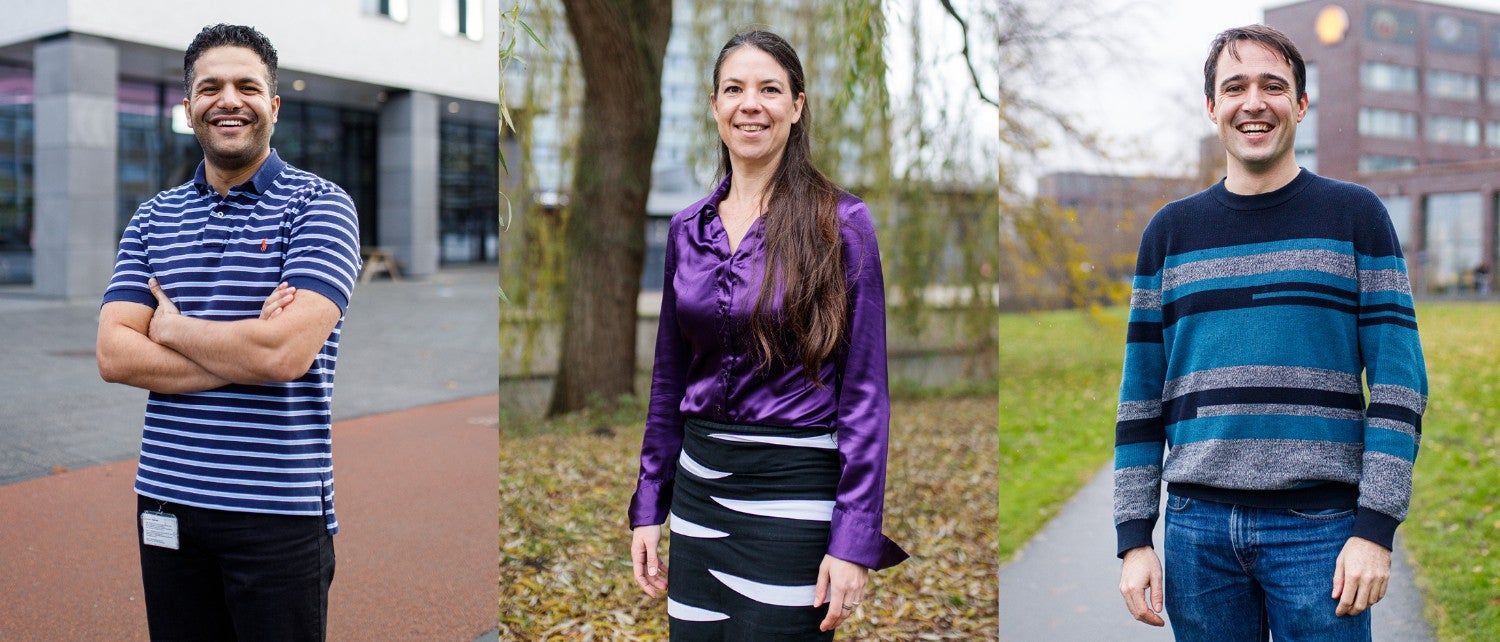The VU has more than 100,000 alumni. Where did they end up after their studies? In this section, we feature three alumni from the same degree programme. This time: alumni from the pharmaceutical sciences study programme.

Hany Majeed (26) graduated in 2020 and is conducting drugs research at Vrije Universiteit Amsterdam.
What do you enjoy most about pharmaceutical sciences?
„The equipment and techniques are stunning as is being able to use these to separate molecules. When I’m sitting behind this equipment, I see a molecule. Whether that’s paracetamol or drugs. For me, there’s no difference. That’s why you shouldn’t ask me what MDMA does to someone as I have no idea. Yet my work and personal life do converge sometimes. It has happened that I was busy the whole day at the lab with MDMA derivatives and then saw someone using this at a party in the evening."
What does your research entail?
„I developed a method that can distinguish the synthetic drugs 3-MMC and 4-MMC from each other. This enables us to distinguish these ten times faster than using comparable techniques. There’s just a minor difference in the position of molecules between 3-MMC and 4-MMC. And yet, forensically there’s a huge difference: one is on the list of soft drugs, the other on the list of hard drugs and that can make a difference in sentencing."
Isn’t this a cat-and-mouse game between drug developers and you?
„Absolutely. The government recently placed 3-MMC on the Opium Law list and that same day dealers sent out an e-mail stating that they are now selling another derivative. The disadvantage is that we know very little about the effect and toxicity of this derivative. The government has inadvertently redirected the focus to anther substance that we know much less about and could be much more dangerous to use."
So chemistry is vital to society.
„Definitely! It’s also a very interesting tool for following trends in society. For example, which drugs are contained in sewage? That changes considerably around New Year and during exam weeks we detect more Ritalin. We also clearly saw reductions in cocaine and MDMA use during the pandemic. It’s so cool to see that; this really is applied chemistry."

Jitske Evertse (40) graduated in 2004 and works as manager at a pharmaceutical company.
How did your interest in healthcare come about?
„I already knew I wanted to be a doctor when I was at nursery school. When I had to choose a study programme, I felt that studying medicine would take too long. I still wanted to make a real difference in healthcare and decided to help develop and market new medicines. Using chemistry in medicine is fascinating. It’s amazing that you can take a pill and that this does all kinds of things to your body."
„During an internship I worked in a lab researching HIV. For six months during the winter I entered the basement before nine o’clock when it wasn’t quite light and I left after five o’clock when it was already dark again. That’s not what I had in mind. I found doing laboratory research to be a lonely job and I knew for sure that I didn’t want that. That’s why I chose a Minor in Policy, Management & Entrepreneurship so I could focus on what’s possible outside the lab."
You then ended up at the pharmaceutical company, Boehringer Ingelheim. What do you do there exactly?
„I’m still involved in medicine research but at a later stage. Boehringer markets all kinds of different medicines. The department I manage is involved in clinical research quality and the quality of the information about medicines once they’re on the market. This includes legislation, registration procedures and side-effects that need to be collated. I’m now much more involved in what medicine really means for someone than during my time in the lab. When I hear that someone can start exercising again because of medicine or can go to the gym more often than previously, I really feel I’m on the right track."
What do you think about the criticism of the pharmaceutical industry that it’s mainly all about earning money?
„I think that’s difficult because it runs contrary to my passion of working in the best interests of healthcare. Yes, companies earn money, but people often don’t know that every new medicine involves investing in over ten years of research. Nor do they realise how much research and monitoring still takes place once the medicine is on the market."
„My motivation is pure, but I can’t vouch for the entire pharmaceutical industry. What I do know is that Boehringer is a family company, without shares. That’s something you can see clearly in the business culture. We aren’t a philanthropic institution, but we do have a long-term vision that doesn’t only focus on profit. For example, we have close partnerships with healthcare organisations to improve COPD care (editor: lung disease) and we provide a lot of development assistance internationally as part of the 'Making More Health' initiatives."

Floran Hendriks (31) graduated in 2017 and works for Shell as a researcher.
What did you think of the pharmaceutical sciences study programme?
„I always loved doing tests in a lab so the study programme was a perfect match for me. I particularly enjoy the analytical side of chemistry. Imagine you add two substances together and make a new substance. But what is it exactly? And have you actually made what you wanted to make? I’ve been in the lab often enough hoping that I’ve made what I wanted to make. But you then need to be able to demonstrate this."
Do you sometimes come up against the stereotype that chemistry isn’t the sexiest profession?
„Yes, very much so. If I tell someone at a bar what I do, I see them starting to glaze over. Fortunately, my girlfriend also studied chemistry so I can discuss everything with her. Funnily enough, people use chemistry in their daily lives more than they maybe realise. Take coffee for instance, or the varnish on your table. It’s less abstract than most people think. I also look at things outside my work through my chemistry glasses. For example, I’m trying to make my own gin at home using professional equipment."
What do you enjoy most about the work you do at Shell?
„Imagine an anomalous value is suddenly found at a refinery. Nobody has any idea what it is. We then go with a team to discuss what it could possibly be and then use all kinds of techniques and a whole fleet of instruments to find out what it is. It’s often a puzzle that we solve together."
Shell doesn’t always come across positively in the media. Do you ever suffer from this?
„I sometimes end up in discussions at birthday parties and I can’t always defend myself. There’s a lot happening at Shell and people often have no idea of the kind of work we’re involved in and how much time and energy we devote to making our products sustainable. A recent example is the first passenger flight using sustainable synthetic kerosene made from CO2, water and renewable energy. That was a fantastic technical milestone. A lot more is being done to develop new energies than most people think and it’s a shame that this isn’t always noticed."






